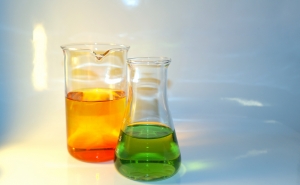Is a Water Softener the Right Solution for Your Water Issues?
Your water supply has a long journey from your local water treatment facility right to your pipes in your home. This means that during this journey the water can pick up a number of contaminants along the way, including silt, microorganisms, and sediment. You may also find that pipe corrosion has added lead, copper and other metals into the mix. This can potentially lead to mineral deposits clogging your pipes and damaging your appliances or even creating a risk to your health. However, many consumers assume that the problem is simply hard water and their first solution is to purchase a water softener, but this might not be the correct solution.
Does Your Water Leave a Deposit?
This is one of the most obvious indications of hard water. The deposits are formed due excess magnesium and calcium in the water. If your water has between 1 and 3.5 grains per gallon, it will be classified as hard, but very hard water can have up to 10.5 grains per gallon or more. Water hardness can lead to soap residues, dry skin and scale deposits. Before you assume that you have hard water, you should be aware that there are other contaminants in water which can leave stains and spots.
The ideal scenario is that your water is clean and clear, but a discoloration can be an indication of the presence of contaminants. Green or blue water is typically caused by the presence of copper. This can be an underlying cause of gastrointestinal illness. If your water has an orange or reddish tinge, it is likely to be contaminated with iron. This can create a metallic taste and lead to staining of fixtures, crockery, and glasses. The presence of manganese is typically indicated by a black or brown tone to the water, which also has a metallic bitter taste.
Does the Water Have an Odor?
Uncontaminated water has a neutral smell, so an odor can be a good indicator of a potential problem. If your water smells like a swimming pool, there may be excess chlorine in your water which can dry out your skin and hair, and has been linked to the development of cancer. An odor resembling rotten eggs can indicate hydrogen sulfide in the water. Unless it is in high concentrations, this is not a particular health risk, but it can make the water unpalatable.
There are a number of potential contaminants in your water supply. If your water smells, tastes or looks unusual, it is important to not make the assumption that any problem is hard water and simply opt for a basic water softener system. It is a far better idea to have your water properly tested and establish what the actual contaminants affecting your water supply are. Many contaminants can potentially have detrimental effects on your health, the performance of your appliances and the aesthetic appearance of your fixtures, so it is important to have the problem properly corrected. In many cases, this will involve the use of a water softener solution or some form of filtration, oxidation or chemical treatment with hydrogen peroxide or chlorine, but you will need the correct method to effectively remove the source of the problem.
About The Author:
Greg Scott is President of Valparaiso based Miracle/EcoWater Systems, the premier water conditioning company in Northwest Indiana serving the Lake, Porter and LaPorte County areas. A 3rd generation water treatment professional, Greg grew up in the family owned business started by his grandfather in the late fifties. He has made water treatment his life and under his direction and high-standards, the company’s water treatment experience, knowledge, and products are unrivaled in region.

